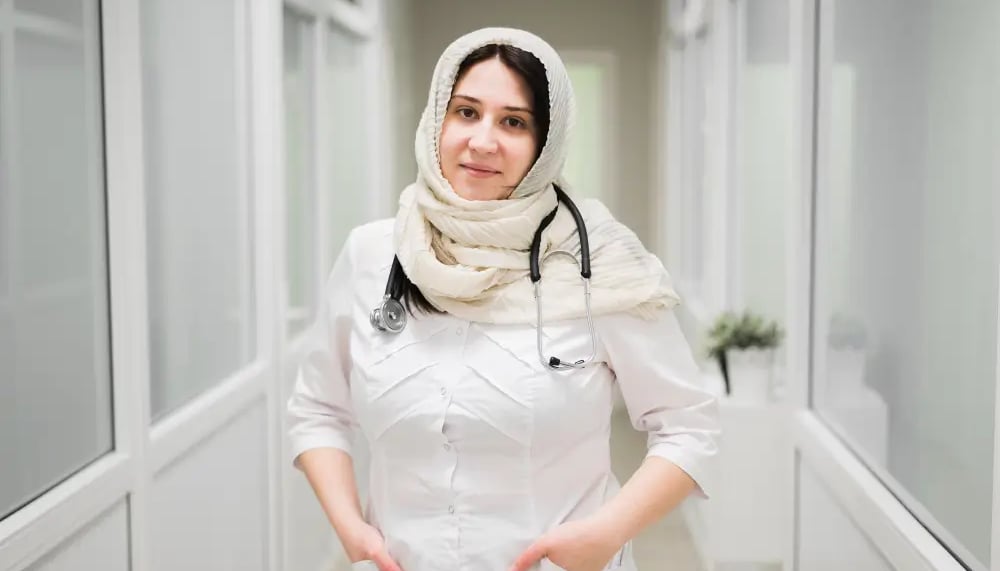Your Guide to MBBS in Kuwait
7/23/20254 min read


Understanding MBBS in Kuwait
The MBBS, or Bachelor of Medicine, Bachelor of Surgery, is a prominent undergraduate medical degree offered in Kuwait, crucial for aspiring healthcare professionals. This program holds significant importance within the Kuwaiti healthcare system, as it provides the foundational knowledge and clinical skills necessary for practicing medicine. Rooted in a rich cultural context, the MBBS program integrates modern medical education with the unique healthcare needs of the local population.
The duration of the MBBS program in Kuwait typically spans six years, accommodating a comprehensive educational framework that combines theoretical learning with practical experience. The curriculum is structured to ensure that students acquire essential medical knowledge in subjects such as anatomy, biochemistry, physiology, and pharmacology during the initial years. As students progress, they engage in clinical rotations, allowing them to apply their knowledge in real-world medical settings, which fosters invaluable hands-on experience.
Admission into the MBBS program is highly competitive, necessitating aspiring students to meet specific requirements. A strong academic background in science subjects, particularly chemistry, biology, and physics, is essential. Additionally, prospective students need to pass entrance examinations, which assess their readiness for the rigors of medical training. Both Kuwaiti nationals and expatriates contribute to the diversity of the student body, enriching the learning environment and fostering cross-cultural understanding.
As the medical profession continues to evolve, the role of both Kuwaiti and expatriate medical students becomes increasingly vital in shaping the healthcare landscape in the region. Their contributions not only address local health issues but also enhance the exchange of knowledge and practices among various healthcare systems. The MBBS program in Kuwait, therefore, represents a pivotal pathway for those aspiring to make a meaningful impact in the field of medicine.
Top Medical Schools in Kuwait
Kuwait is home to several esteemed medical schools that provide comprehensive MBBS programs, catering to aspiring medical professionals who seek a rewarding career in healthcare. Among these institutions, the Kuwait University Faculty of Medicine stands out prominently. Established in 1972, it is the first medical school in the country and prides itself on a robust curriculum that is continuously updated to meet international standards. Its accreditation by the Kuwait Ministry of Higher Education ensures that graduates are well-prepared to face the challenges of modern medicine. The faculty comprises experienced educators and practitioners who actively engage in both teaching and research, thereby enhancing the learning environment for students.
Another noteworthy institution is the Gulf University for Science and Technology (GUST). Although primarily recognized for its engineering and business programs, GUST has recently begun offering a quality health sciences program including MBBS. Its state-of-the-art facilities, including modern laboratories and simulation centers, provide students with hands-on training that is vital in medical education. GUST also places significant emphasis on student support systems, including mentorship programs and counselling services to foster student success.
The Arabian Gulf University, though located in Bahrain, also attracts Kuwaiti students due to its comprehensive MBBS program. It boasts a diverse student body and an educational philosophy that promotes collaborative learning. This university is distinguished by its partnerships with leading hospitals across the region, providing students with invaluable clinical experience that enhances their practical skills.
Applying to these medical schools typically requires meeting specific academic qualifications, including a high school diploma with science-related coursework and passing an entrance examination. Each institution may have unique features, such as international exchange programs or community health initiatives, that set them apart. Ultimately, the choice of a medical school in Kuwait can significantly influence a student's future career in medicine, both locally and internationally.
Clinical Exposure and Internships
One of the essential components of pursuing an MBBS degree in Kuwait is the significant clinical exposure and hands-on training that students engage in throughout their studies. This real-world experience is crucial as it prepares them for their future careers as competent and empathetic healthcare professionals. Clinical rotations typically begin in the later years of the program, allowing students to apply their theoretical knowledge in diverse medical settings.
Internships provide an invaluable opportunity for MBBS students to immerse themselves in the healthcare environment, where they can observe and participate in patient care. These internships are often undertaken in various clinical settings, including hospitals, clinics, and primary care facilities, exposing students to different medical specialties. By interacting with patients and healthcare teams, students gain insights into the day-to-day responsibilities of a physician, as well as essential skills such as communication and critical thinking.
Securing an internship can be competitive, yet there are practical steps students can take to enhance their chances. Networking with faculty members, utilizing university career services, and engaging with healthcare professionals are effective strategies. Additionally, many institutions offer structured programs or partnerships with local healthcare facilities that can help students find suitable internship placements. It is advisable for students to explore these avenues early in their academic journey.
The breadth of clinical exposure students receive during their MBBS program in Kuwait not only boosts their confidence but also enriches their educational experience. This exposure to various medical environments plays a pivotal role in shaping their clinical competencies and preparing them for residency training and eventual medical practice. As students transition from classroom learning to hands-on experiences, they cultivate a profound understanding of patient care, ultimately becoming more well-rounded physicians.
Future Prospects and Opportunities in Healthcare
The healthcare sector in Kuwait offers a plethora of opportunities for MBBS graduates, positioning itself as a significant force in the region's medical landscape. The demand for qualified healthcare professionals has surged, presenting both government and private sector roles that cater to a wide array of specialties. Public healthcare institutions, such as the Ministry of Health, are continually on the lookout for medical practitioners to enhance their services. Furthermore, private hospitals and clinics are also expanding, which leads to increased job openings for MBBS graduates. These establishments range from extensive medical centers to specialized clinics, providing a robust job market suited to various professional interests.
Within this dynamic environment, continuous professional development is paramount. Graduates are encouraged to engage in lifelong learning to keep pace with medical advancements and acquire further qualifications. Specialization is a popular pathway; many opt for fields such as surgery, pediatrics, internal medicine, and emergency medicine. Postgraduate training not only enhances medical expertise but also boosts employability. Extra certifications, workshops, and internships in specialty areas can significantly improve a physician's skills and marketability.
Moreover, the growing emphasis on areas such as telemedicine, rehabilitation, and geriatric care hints at evolving sectors within Kuwaiti healthcare. As technology integrates more deeply into healthcare delivery, MBBS graduates proficient in digital health applications and data analytics will have a competitive edge. The emerging demand for healthcare innovation and patient-centered care models further signifies that the possibilities for MBBS graduates are expanding. Thus, with the right approach to professional development and specialization, the prospects for healthcare careers in Kuwait are both promising and diverse.
Address
C 73 Prem Complex New Delhi 110065
Contacts
+91-9697909593,9953597970
quickglobalsolution@gmail.com
